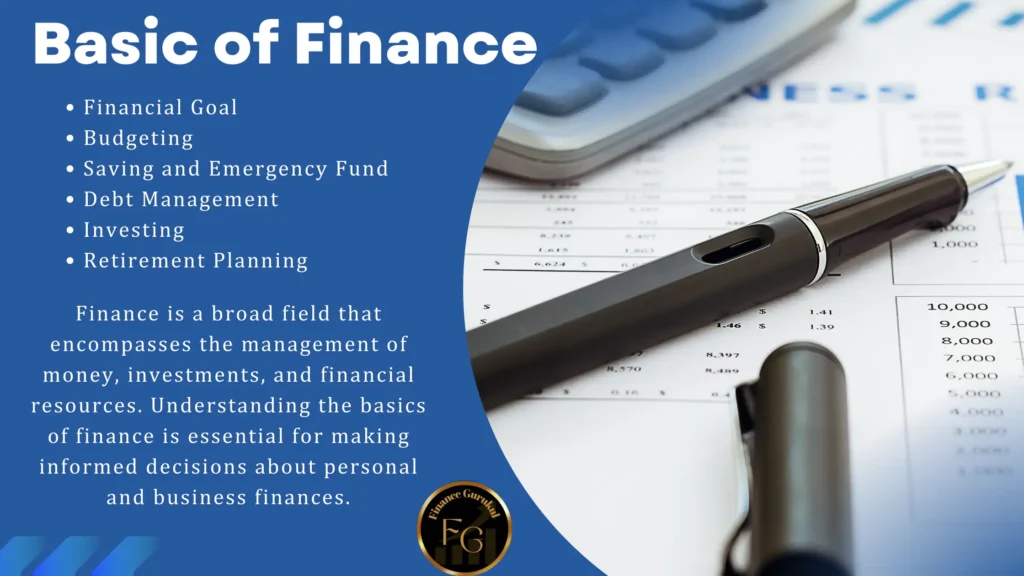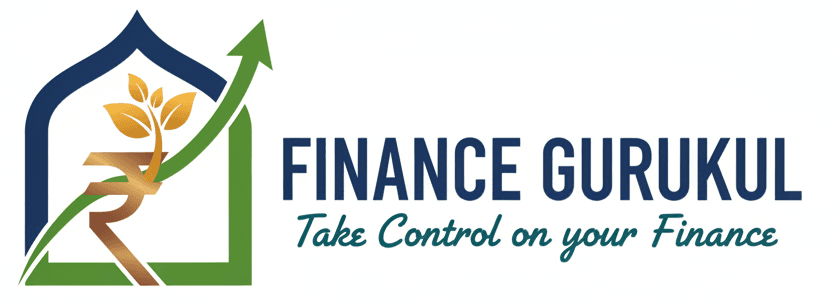Finance is a broad field that encompasses the management of money, investments, and financial resources. Understanding the basics of finance is essential for making informed decisions about personal and business finances. Here are some key concepts to grasp:

Finance is a broad field that encompasses the management of money, investments, and financial resources. Understanding the basics of finance is essential for making informed decisions about personal and business finances. Here are some key concepts to grasp:
1. Financial Goals: Start by setting clear financial goals. Whether it’s saving for a down payment on a house, paying off debt, or planning for retirement, having specific objectives helps guide your financial decisions.
2. Budgeting: A budget is a tool that helps you track and manage your income and expenses. It allows you to allocate funds for different purposes, prioritize spending, and ensure you’re living within your means.
3. Savings and Emergency Fund: Saving money is vital for financial stability and achieving long-term goals. Establish an emergency fund to cover unexpected expenses, typically three to six months’ worth of living expenses, to avoid going into debt during challenging times.
4. Debt Management: Understand the difference between good and bad debt. Good debt, such as a mortgage or business loan, can be an investment, while bad debt, like high-interest credit card debt, should be minimized. Develop strategies to manage and pay off debt effectively.
5. Credit Scores: Your credit score is a numerical representation of your creditworthiness. It impacts your ability to borrow money and obtain favorable interest rates. Establish and maintain a good credit score by paying bills on time and using credit responsibly.
6. Investing: Investing involves allocating money with the expectation of generating returns or income over time. Learn about different investment options, such as stocks, bonds, mutual funds, and real estate, and consider diversifying your portfolio to manage risk.
7. Risk Management: Assess and manage financial risks, such as unexpected events, market fluctuations, or job loss. Insurance, emergency funds, and diversification are strategies to mitigate risks and protect your financial well-being.
8. Retirement Planning: Start planning for retirement early, taking advantage of retirement accounts, such as Employee Provident Fund (EPF), Public Provident Fund (PPF), National Pension System (NPS), Understand investment options, contribution limits, and the power of compounding to ensure a comfortable retirement.
9. Financial Literacy: Continuously educate yourself about personal finance. Read books, attend seminars, and follow reputable financial resources to stay updated on financial topics and make informed decisions.
10. Seek Professional Advice: Consider consulting financial advisors or professionals for guidance tailored to your specific financial situation and goals. They can provide expertise, help with investment strategies, tax planning, and overall financial planning.
Remember, mastering the basics of finance is an ongoing process. Building a strong foundation in personal finance empowers you to make sound financial decisions, manage your money effectively, and work towards achieving your financial goals.
Thanks for Reading this Vlog Support Us and Share this Master Finance Vlog



